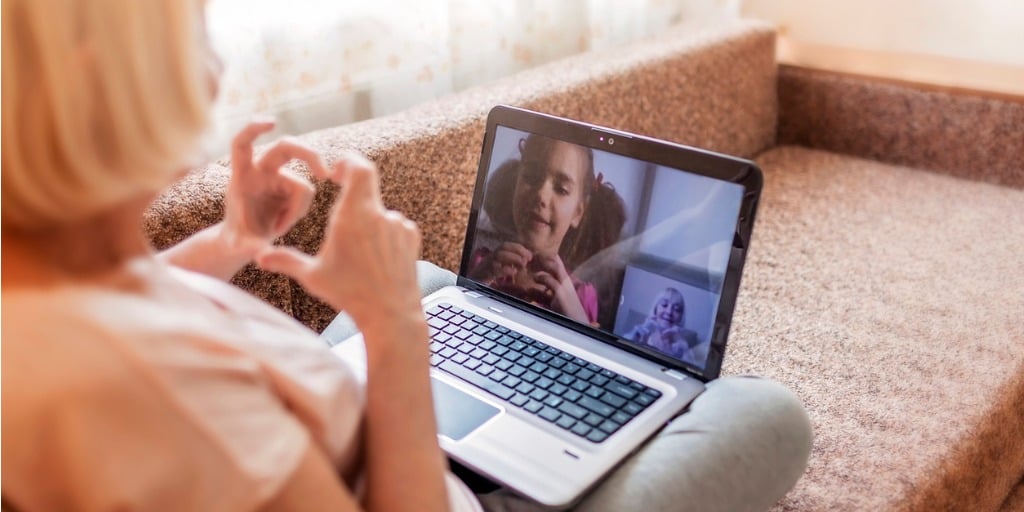How coronavirus impacts physical and mental health
There’s no doubt that the coronavirus pandemic has taken a toll on our mental health and made certain aspects of daily life more challenging on many levels. To better understand the pandemic's impact on health, we recently asked members of our online AllWays Community about their coronavirus-related concerns, feelings, and habits. We’re sharing those results with you today.
Greatest struggles around coronavirus
When asked what the most difficult aspect of the pandemic was, three quarters of our respondents said that not knowing how long it will last is their top concern.
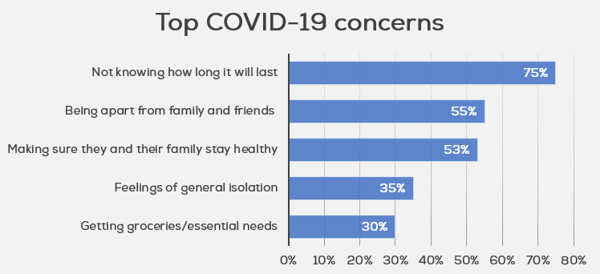
Next highest was being apart from family and friends, followed by just over half of respondents saying they were most worried about making sure they and their families stay healthy. The final concerns in the top 5 were feelings of general isolation and getting groceries and other essentials.
Delaying health care
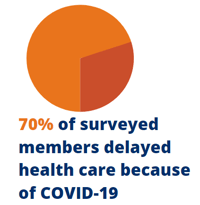 Because of the pandemic, 70% of respondents have delayed their health care. While just over half had their appointments canceled on them, others postponed getting care because they:
Because of the pandemic, 70% of respondents have delayed their health care. While just over half had their appointments canceled on them, others postponed getting care because they:
- Didn’t feel their symptoms were serious (18%)
- Did not have a telemedicine option (15%)
- Were concerned about getting COVID-19 (15%)
- Were following government orders to stay at home (14%)
The most commonly delayed services were ones that would require patients to see their doctor or specialist in-person. Half of respondents had delayed dental care, and around a quarter weren't able to have their routine care, annual physicals, or vision services. Screenings and other procedures were also impacted for less than a fifth of members.
Fortunately, 57% of surveyed members were able to get the types of care they needed via telemedicine.
Telemedicine use
To learn more about members’ perception of virtual health care services, we asked how likely they were to get certain types of care via telemedicine in the next six months. In general, we found that Millennials and Gen X planned on using these virtual services more often than Baby Boomers.
Twenty-one percent of surveyed members said they are ‘extremely likely’ to get follow-up care for an existing medical condition using telemedicine. Around 70% are at least somewhat likely to get their general, routine care online, and 73% feel the same about evaluating new symptoms virtually.
Stress and emotional experiences
When asked how often they experienced certain emotional responses over the previous week, our members shared that they had been feeling a relatively high amount of anxiety.
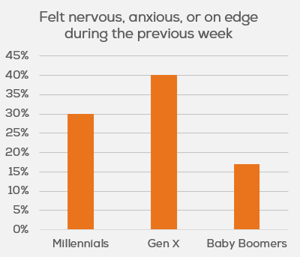
Twenty-seven percent said they felt anxious or on edge a full 5-7 days over the last week. More Millennials and Gen Xers reported feeling nervous to some degree than members of the Baby Boomer generation.
Members experienced feelings of depression less often throughout the week, though 26% said they felt depressed 3-4 or more days. Overall, three out of five members said they felt more stress than usual, and two out of five experienced a more difficult time sleeping.
When asked how often they felt hopeful for the future, 18% said they were hopeful very often but an equal number said they hadn’t felt hopeful at all. Most respondents, 42%, said they had been hopeful only one or two days in the past week. Among the generations, 22% of Gen Xers and 26% of Boomers felt hopeful at some point, but our Millennial respondents said they hadn't felt that way at all.
Feelings of loneliness were less common. Almost half of members did not feel lonely at any point throughout the week, while only 3 in 10 experienced loneliness for three or more days.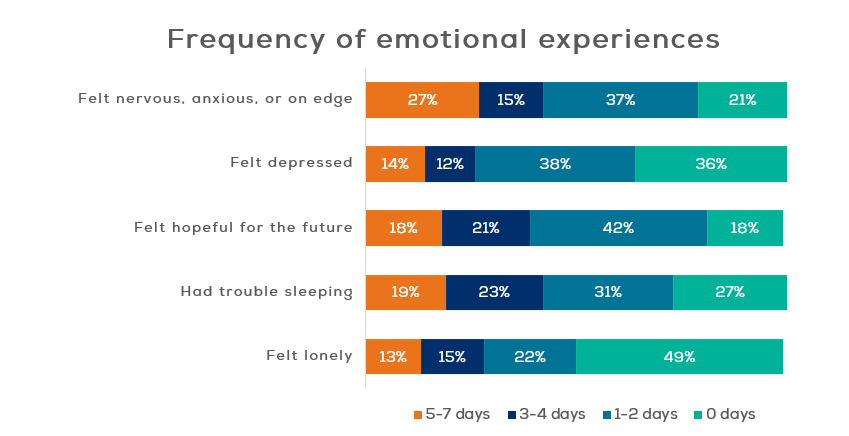
Changing habits, behaviors, and activities
Members are coping with the stress of the pandemic and being stuck at home using various methods, both positive and negative. Some of the positive ways people are dealing with this situation include:
- Calling friends or family more often
- Taking more walks or walking the dog
- Enjoying baking/cooking
- Reading more
- Gardening/outside home improvement
However, the situation has also seen an increase in other behaviors that may be contributing to stress or unhealthy habits, like:
- Watching TV more
- Overeating and eating unhealthy foods
- Worrying about their jobs
- Concentrating on things besides COVID-19
- Working more hours
Members also reported on some of the activities they stared doing after the pandemic began or are now doing more often. These new habits typically involve finding ways to maintain physical distancing while keeping up healthy habits and getting needed supplies.
Thirty-one percent said they first used telemedicine to get medical care after the pandemic started, and 16% said they started using telemedicine for mental health visits. Other popular new activities include taking part in online fitness classes (15%) and ordering groceries online (14%).
When it comes to old habits people are engaging in more often, technology topped the poll. Fifty-one percent are streaming video online more often, another half are making more personal video calls. A fifth had previously used telemedicine for general/medical care visits but are now doing so more often than before.
About the survey
This survey was sent out to the AllWays Community, a group of AllWays Health Partners members who have volunteered to share their thoughts and feedback on our products and services and participate in other health-related surveys. The survey was available for one week between May 21 and May 28 and was completed by 100 of our members.
